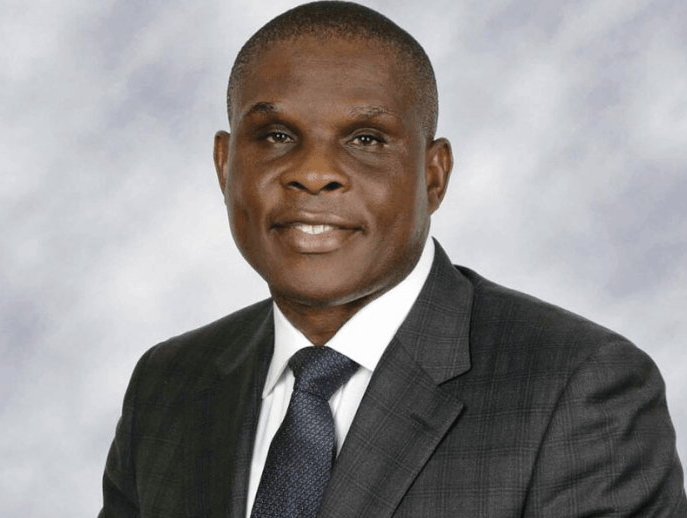Interview with Young E-Publisher Adachukwu Onwudiwe, Founder Crater Library
This is an interview with Founder/Editor-in-Chief of The Crater Library, an E-Publishing platform created to bridge the gap between content developers and there local readers. In this interview, the young e-publisher shared with The Total Entrepreneurs how she started an e-publishing platform and what prompted her to do so. She also stated some challenges facing content developers and e-publishing platforms and how such challenges can be overcome.
Let’s hear from her.
Please, introduce yourself?
My name is Adachukwu Onwudiwe, I am a graduate of Library and information Science from UNN. I am proudly practicing my profession with a non-governmental organisation as the institution’s research librarian. I love reading books, it’s natural for me.

Why the Library niche?
Well, while growing up I wanted to be a lawyer and never considered librarianship as a profession till 2005 when I applied for law in UNN. I was not admitted but was given an option to shop for other courses. Considering my grades in Mathematics which was below the accepted grade, the odds fell on Library and Information Science which, at that time, accepted a pass mark in mathematics. I was sceptical at first but when I thought of my aunt who studied the same course, and was practicing and doing well for herself, I said to myself, “why not”. So I applied and was given admission. To be frank, I never regretted taking that decision.
Tell me about The Crater Library
The Crater Library is an e-publisher platform. I founded it because I noticed we have issue with access to local content especially online. Most people that visited the library I work sought books written by Nigerians but these books are rarely available in e-format. They often found these books on foreign websites and e-commerce sites but not much in Nigeria. I decided to fill this gap by giving our local writers a platform to publish their works for free and get paid when it is downloaded by our users. Some writers also give free access to their e-books for readers to read, get informed and enjoy.
What challenges did you face starting up crater library and do you still face those challenges today?
The major challenges I faced and still facing today are: funding, publicity, adaptability and piracy related issues.
In terms of fund, maintaining the website requires money. Also, the amount of data required for uploading these books, book covers, and other media is much and the cost of internet data in Nigeria today is something else.
Coming to publicity, the truth is that the niche is a small one and getting the right audience hasn’t been so easy but we are pushing by using different platforms and social media.
Then in terms of adaptability and piracy, a lot of work needs to be done. Local content developers are still sceptical about publishing their works online. They are afraid that their contents could be stolen. The government on its own part is doing little to avoid copyright infringement. The government should look into legal boundaries and application of the creative common license in e-publishing. This will give writers the right to determine how their works are used by others.
Are you the only one managing the platform?
No. I have a team of four (4) people who assist me in editing and reviewing of work before publishing. Also, they assist in content development, social media marketing and copyright matters as well as the charity aspect of the work.
How do you source for books published on the platform?
We advertise on Linkedin, Twitter, Facebook and Instagram. We talk to people on these platforms encouraging them to publish their works with us. We also look for open source books like the Onitsha Market Literature books on our site. We got it from a university in United States of America. We wrote to the university requesting for permission to publish the books on The Crater platform and they obliged. Now readers can download the book for free and get more information about pre and post independence lives and creative writing in Nigeria.
Do you think it is easy managing a library?
No, I don’t think so. For example, we are still sourcing for books and editing those books hasn’t been an easy task but my love for books keeps me going.
Which books motivate you as a librarian?
Funny as it may sound I don’t like reading motivational books, but I do love reading history books. Books related to the past and how governments operate. I think I have read about 50% of books written in relation to the Nigerian history-especially the civil war.
What keeps you going when you’re faced with the challenge of managing the crater library?
First, God and secondly, I keep reminding myself that I want to leave a legacy in the publishing industry in Nigeria.
What are your thoughts on young people and reading?
Well, I can’t really say for sure because there is actually no available research on that. But from my own observation, it seems most youths think carrying books around makes them look “smart” and I doubt that a good number of them actually read the content of the book they show off. On social media, you can see the lack of interest in reading. For example, when you see an interesting post on Facebook and read comments written by mostly young Nigerians, you find out that a lot of them didn’t read the content before making their comments, rather they based their judgement from the title. So yes, from my observation, the reading culture here is low.
How do you define success?
Success to me means two things; Impact and money. If I’m able to make an impact on local content developers and convince them to publish their work on our platform, I’ll be most delighted. I would have bridged a gap between the writer and the audience. I will also make some money when they do and that’s basically success for me.
What advice can you give someone who wants to start an e-library?
Do enough ground work especially when it comes to having access to e-books. The perception out there is really not how it seems so I encourage any potential e-publisher to first identify a particular niche they want to venture into and make proper investigation before starting up.
What is the last word you will give to my readers when it comes to succeeding as a librarian?
Get IT skills. This is very important now. Managing a library is more than what we are taught in school. If you must be a successful librarian, you must be creative and innovative with ICT.
End.
You can visit The Crater Library for more information.
©FrancisNwokike




